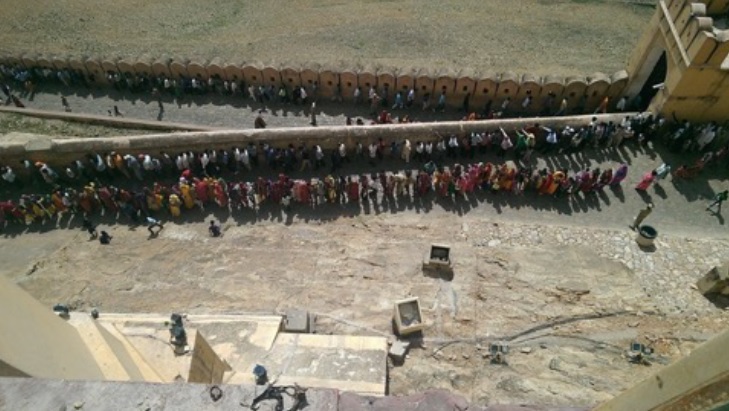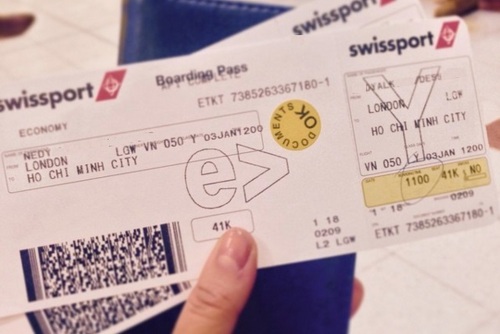1. Know what is socially acceptable and expected
In many European countries, the most awkward situations often revolve around the potential language barrier or how much you should or shouldn't tip. In developing countries, it can be a lot more tricky than that.
While having 'excuse me' and 'sorry' at the tip of your tongue will get you through most difficult encounters, in countries like China, you may have to speak with authority and command respect to get your coffee order taken seriously.
As in most cases, the best way to go is through trial and error. Keep your senses open and observe the locals.
2. Mental preparedness
Come up with a personal checklist for yourself and your well-being. If you are travelling for work, you don't want to let either your nerves or your excitement (or both) hinder your performance.
If you're travelling for leisure, well, being prepared to deal with anything is still a golden rule. How are you feeling today, physically, mentally and emotionally? Give yourself a pep talk, take a bath, take care of yourself.
This leaves you with more energy and flexibility to cope with and deal with any issues that may arise during your day.
3. Physical preparedness!
Make another checklist, even if you're sure you won't forget anything. But not just essentials in between accommodations, think of your activities.
Which part of town are you going to this evening? Perhaps you should wear clothing with inside pockets to protect your belongings as opposed to bringing your favourite bag.
4. Street vendors and shopping heaven
Let’s be honest. If you’re visiting a country like China or India, the products you pay top dollar for back at home were probably made here.
For the same price, you could buy that same quality beautiful scarf in 5 different colours. There is absolutely nothing standing in your way, except maybe the overly-aggressive street vendors you’ll be buying from.
Please bear in mind that quite often, this is the only source of income that the sellers and their entire families have, so if you don’t want their products, show a little compassion.
However, if you totally do, do not under any circumstance be afraid to haggle. You don’t have to speak the native language to do so: it’s a whole other language in itself! Which means it will take a couple of goes to get the hang of, but I assure you, it’s worth it. This also applies in markets.
Warning: Some street vendors are extremely crafty, but don’t let that put you off. For example, myself and many of my friends have experienced photographers taking our pictures and trying to sell them to us without us having agreed to it.
The best way to deal with unwanted attention is just to ignore it and continue, but still bear in mind that they are only trying to make a living, so be firm but polite.
5. Signs of poverty

Nothing can ever truly prepare you for some of the living conditions and environments you will come across. It is not right or fair and you will probably be struck with a need to do something about it (and rightfully so).
However, the best way to help is to volunteer your time with an established charitable organisation or to give money to support one.
ICS (International Citizen Service) pairs up with different organisations around the world to train and send volunteers out to make a real difference. Unlike most other travel-volunteering organisations, volunteers only have to raise £800 instead of paying at least a grand to even get started, so look out for ICS fundraisers.
Honestly, the mobs of children descending upon you with requests for money or tugging on the bracelets on your wrists are probably sent by the local mafia (true story). Don’t let your good intentions go to waste.
6. Pro tip for the ladies

Some of the most beautiful instances of architecture on Earth are places of worship. St. Peter’s Basilica, the Taj Mahal, all places you will no doubt want to gawk at will probably ask you to cover your shoulders and your knees.
Being located in hot, hot countries, standard attire (for me at least) is a tank top and shorts. Don’t be caught out and never leave without at least one long scarf/wrap/shawl.
Not only will they come in handy in situations like these, they also do an excellent job at keeping you cool by preventing the sun’s rays from touching your skin.
If you have dark hair like me, wearing it as a hood or a head wrap makes a significant difference, but if you don’t want to wear it at all, it’s a brilliant way to tell your bags and belongings apart from everybody else’s.
By Lizia Woolf
Related Pages







